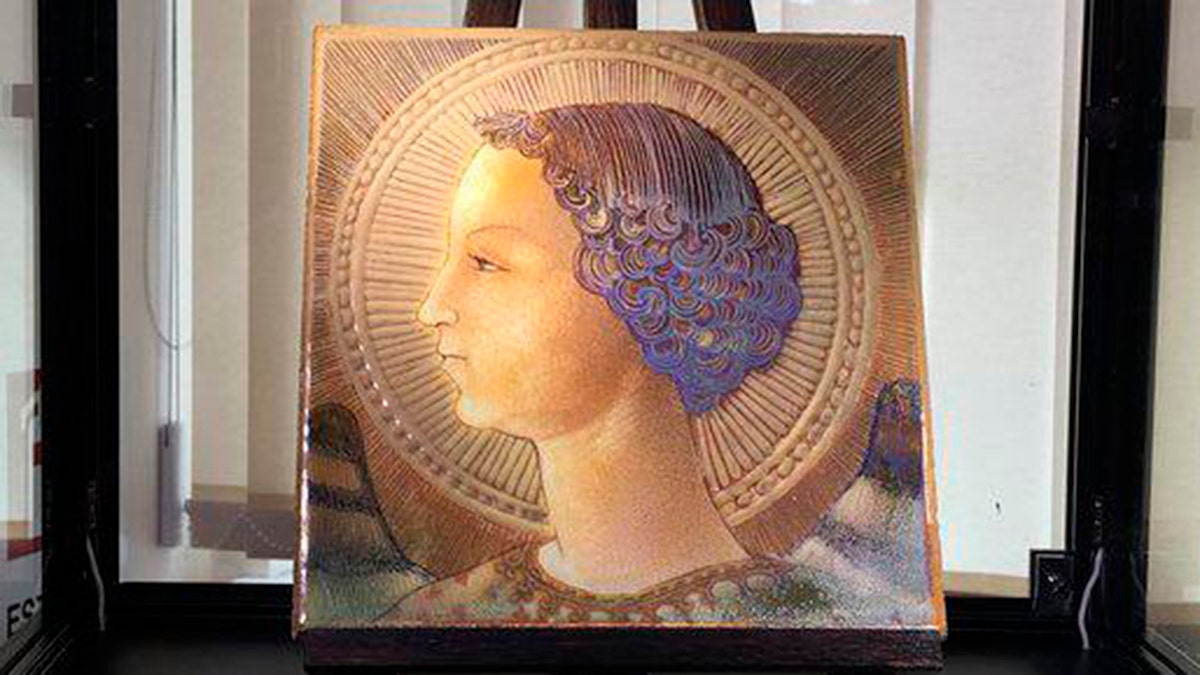
Experts in Italy believe that the work portraying the Archangel Gabriel is a self-portrait of Leonardo da Vinci and the famous artist's earliest surviving work. (ANSA via AP)
Experts in Italy say they have found the earliest surviving work by Leonardo da Vinci.
The small glazed terracotta tile, described as a self-portrait of the artist as the Archangel Gabriel, was unveiled at a press conference in Rome on Thursday.
Professor Ernesto Solari worked with handwriting expert Ivana Bonfantino to analyze the majolica tile. Citing the experts, the Telegraph reports that infrared analysis revealed a tiny signature on the jawline of the angel’s face. When the detail was magnified, it read “Da Vinci Lionardo” and the date “1471.”
LEONARDO DA VINCI'S $450 MILLION 'SALVATOR MUNDI' PAINTING HEADS TO THE LOUVRE ABU DHABI
Other details, including the number “52” were discovered on the tile, which experts believe make up the coded message: “I, Leonardo da Vinci, born in 1452, represented myself as Archangel Gabriel in 1471.”
The tile was studied in three different laboratories, according to Solari, who believes that the Italian Renaissance master used a pottery kiln owned by his grandparents to produce the tile.
The tile’s authenticity, however, has been questioned by noted Leonardo expert Martin Kemp, professor emeritus of the history of art at the University of Oxford. "The tile is not credible as a work by Leonardo or of any competant pupil of [Leonardo's teacher Andrea del] Verrocchio," he told Fox News, via email. "The treatment of the hair and details of the costume are comically schematic."
HISTORIANS SAY THEY'VE FOUND LEONARDO DA VINCI'S LIVING RELATIVES
With so few of Leonardo’s artworks in existence, potential new finds come under intense scrutiny.
There has even been some debate about the authenticity of Da Vinci’s “Salvator Mundi” painting, which sold for a record $450.3 million last year.
The painting grabbed headlines around the world when it was sold at Christie’s auction house in New York. "Salvator Mundi," Latin for "Savior of the World,” is one of fewer than 20 paintings by Da Vinci known to exist and the only one in private hands.
A copy of the Archangel Gabriel tile is on display at Rome's Leonardo da Vinci Experience Museum.
The Associated Press contributed to this article.
Follow James Rogers on Twitter @jamesjrogers








































